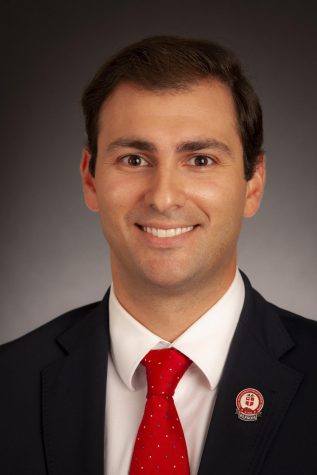Registration presents problems for student-athletes
Registering for classes is stressful for all students. However, athletes are faced with an additional set of barriers.
Despite being “student” athletes, class schedules must work around their practice and game times. Exam schedules must factor in missing dates for traveling out of town and other sport-related events. Student-athletes are also required to see an additional athletic adviser before selecting their classes for the upcoming semester. This too presents a significant problem considering it must be scheduled and completed before the date of registration.
Although these issues have continued to negatively affect the student-athletes, little to nothing has been done to solve the problem in my four years here. Allowing athletes to register in advance of the official registration date would alleviate most of the issues and relieve stress from the lives of athletes.
Priority registration is always a controversial issue because it appears to be showing favoritism to a particular group based on status or ability. Faculty do not want to award a privilege to one group. However, this is already taking place on campus. Students participating in the honors program register early. Honors students, much like athletes, have additional requirements for the university regarding their schedule, therefore, letting them register in advance only seems useful and fair. Providing early registration for student-athletes would be equally as valuable and rational.
Each athlete is required to make an appointment with not only their academic adviser but also an athletic adviser. The athletic adviser is responsible for making sure all class schedules are up to NCAA standards before she releases the athletic hold which is what hinders athletes from registering immediately after being advised by their academic adviser. From the outside, this doesn’t seem to slow down athletes’ registration process, however, there is only one athletic adviser. For the past three years, the athletic department has refused to hire or train a person to step into that role.
There are 13 athletic teams on campus and approximately 300 student-athletes. With all of the athletes trying to reach the same adviser before registration date, chaos inevitably erupts as stress is put on the athletes, coaches and advisers. Consequently, this puts professors in a bind having to choose whether or not to give overrides, another unnecessary stress. Mathematically and practically, this just doesn’t make sense. Giving student-athletes priority registration will give them more time to make appointments with both of their required advisers and dissolve some of the major issues.
The athletic teams compete in the Lonestar Conference against other schools in the geographical region. These schools are fairly comparable in size, cost and level of education. Within our conference, we are the only school not participating in priority registration for athletes. Whether or not this is affecting student-athletes is not concrete; however, the university’s overall athletic GPAs are less than impressive. The athletic teams on campus routinely fall into the low end of team GPAs compared to the rest of the conference. Perhaps this can be attributed in part to poor class schedules and unnecessary stress added to the lives of the athletes.
Priority registration is by no means a cure-all. Given the change, grades may not increase and classes may still be missed; however, it may alleviate stress on behalf of the student-athletes, professors, coaches and advisers.

















